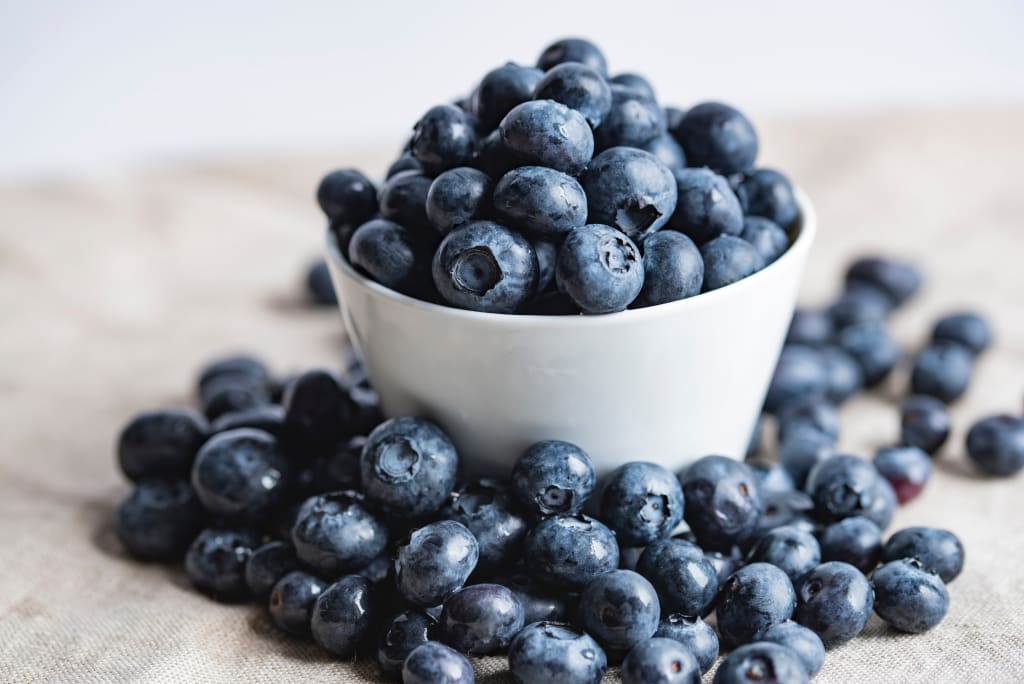Are These Health Foods Making You Sick?
5 Surprising Foods That Are Toxic if You Overindulge

Too Much of a Good Thing?
You might be patting yourself on the back for finally ditching the junk food and eating healthy.
Your clothes fit better, your tummy looks slimmer and you’re congratulating yourself on having green smoothies for breakfast instead of bacon and eggs.
But if you over-indulge, even on healthy foods, you may be making yourself sick, unknowingly doing damage to your digestive, cardiovascular, and nervous systems.
Are you feeling light-headed or dizzy?
How’s your energy level?
Are you experiencing hair loss?
Blurry vision?
Headaches?
A metallic taste in your mouth?
There are a number of healthy foods that will actually do you harm if you eat them in excess. And the line between “just enough” and “too much" may be a lot narrower than you think.
Here are a few trending health foods, what their benefits/dangers are, and how much is too much.
-----------------------------------------------------------------------------------
Blueberries
Blueberries are one of nature’s most perfect foods if eaten in moderation. They are chock-full of antioxidants, high in fiber, rich in nutrients, providing Vitamin C, Vitamin K, and Manganese, and are low calorie!
But… you may experience problems if you eat more than the recommended 1 cup per day. Excess blueberry consumption puts you at risk for:
Vitamin K overdose - Symptoms include difficulty in swallowing, irregular breathing, fainting, shortness of breath, skin rashes, and increased risk of internal bleeding and bruising.
Salicylate sensitivity - If you have an allergy to aspirin, avoid eating blueberries. Blueberries have high amounts of salicylates, which is a compound found naturally in a lot of plants and is a key ingredient in the formation of aspirin.
Sensitivity to salicylates may cause rashes, headaches, and gastrointestinal symptoms like nausea, vomiting, acid reflux, bloating, gas, diarrhea, and constipation. Additionally, salicylates are a natural anti-coagulant, so avoid eating blueberries if you are on blood-thinning medications.
Brazil Nuts
Brazil nuts have a smooth, buttery flavor and eaten in moderation are a healthy snack. They’re packed with antioxidants, Vitamin E, monounsaturated fats, and protein. They’re a great source of fiber and packed with minerals such as copper, zinc, thiamine, magnesium, and selenium (an important nutrient that plays a crucial role in your body’s cell growth, healthy thyroid, and immune system functions).
But… did you know, making a habit of eating over 4 or 5 Brazil nuts in one day can lead to selenosis?
Selenosis is (surprise!) an overdose of selenium. Symptoms can include upset stomach, hair loss, fatigue, irritability, diarrhea, brittle hair or nails, discolored teeth, nervous system issues, a metallic taste in the mouth, and a garlic-like odor in the breath. Untreated, selenosis can even lead to difficulty breathing, tremors, kidney failure, heart attack, or heart failure.
One Brazil nut contains approximately 68 to 91 micrograms of selenium, and the upper limit of consumption for adults is 400 micrograms per day. Limit yourself to only 4 or 5 Brazil nuts daily, and you’ll stay in the clear.
Kale, Cabbage, Broccoli, and Cauliflower
These cruciferous vegetables are often the key ingredients in your daily green smoothie (we’ll get to spinach next).
But unless you’re buying organic veggies and making your own smoothies, limit your intake.
The problem lies in thallium, a toxic heavy metal that is found in farm soil, and preferentially accumulates in cruciferous veggies - which also include Brussel sprouts and bok choy.
Even low exposure to thallium can cause symptoms such as diarrhea, stomach pain, nausea, hair loss, and peripheral neuropathy.
If you’re having green smoothies every day, with no control over the produce going into them, you could expose yourself to high levels of thallium. Consider buying organic vegetables and a blender. The small increase in your efforts and food bill will be safer in the long run.
Spinach
Yes, even spinach can be harmful if you eat more than 1 cup of raw leaves per day. Spinach, collard greens, chard, dandelion greens, broccoli, cabbage, carrots, beets, and even certain berries contain oxalates, another plant-based compound. Oxalates can promote inflammation and even contribute to the formation of kidney stones.
In addition, oxalate accumulation has been associated with chronic pain, fibromyalgia pain, vulvar pain, and neurological symptoms.
How much oxalate is too much? High oxalate intake is defined as consuming 250 mg per day.
Do you know how much oxalate can be found in 1 cup of raw spinach leaves? 656 mg. Cooking spinach, however, drastically reduces the number of oxalates.
Don’t shy completely away from this superfood! Spinach has tremendous health benefits. It’s packed with Vitamin C, iron, magnesium, calcium, folate, and potassium, and is very low calorie. Spinach has also been found to help control diabetes and lower the risk of cancer.
Vary the way you consume spinach. This is one case where raw every day isn’t always better.
Kimchi
Do you love kimchi? It loves you, too!
Kimchi is renowned for its probiotic properties, as well as being a good source of fiber, and full of vitamins C and A. It’s also rich in glucosinolates, compounds that may help lower inflammation and potentially fight cancer.
The problem? Sodium. One serving (100 grams) of kimchi contains a whopping 670 milligrams of sodium, which is one-third of your recommended daily intake. Excess sodium in your diet can cause high blood pressure, heart disease, and stroke.
So, eat your kimchi. Your body will thank you for it. But be careful to only eat a single serving, and on the days you eat kimchi, keep an extra sharp eye on the rest of your sodium intake.
------------------------------------------------------------------------------------
Everything in moderation.
Be aware of the amounts you consume of these healthy foods and listen to your body. If you’re eating healthy, but you feel dizzy or weak, consult with your doctor. Keep track of the changes in your diet, and how certain foods make you feel. Everyone’s body is different.
Congratulations on your quest to eat healthier foods! Every day of your journey is one step closer to your goal of better health.
----------------------------------------------------------------------------------------
https://www.healthline.com/nutrition/brazil-nuts-benefits
https://www.thehealthy.com/weight-loss/foods-to-eat-every-day/
https://www.medicalnewstoday.com/articles/270609#nutrition
https://www.thehealthy.com/weight-loss/healthy-foods-never-overeat/
https://www.foodandwine.com/news/toxic-foods-overeating
About the Creator
Shell St. James
Shell St. James is a New England author living in an 1895 farmhouse with her musician soulmate, feline muse, and a benevolent ghost. Her novel, "The Mermaid of Agawam Bay", is available on Amazon. Find out more at www.shellstjames.com
Enjoyed the story? Support the Creator.
Subscribe for free to receive all their stories in your feed. You could also pledge your support or give them a one-off tip, letting them know you appreciate their work.






Comments
There are no comments for this story
Be the first to respond and start the conversation.